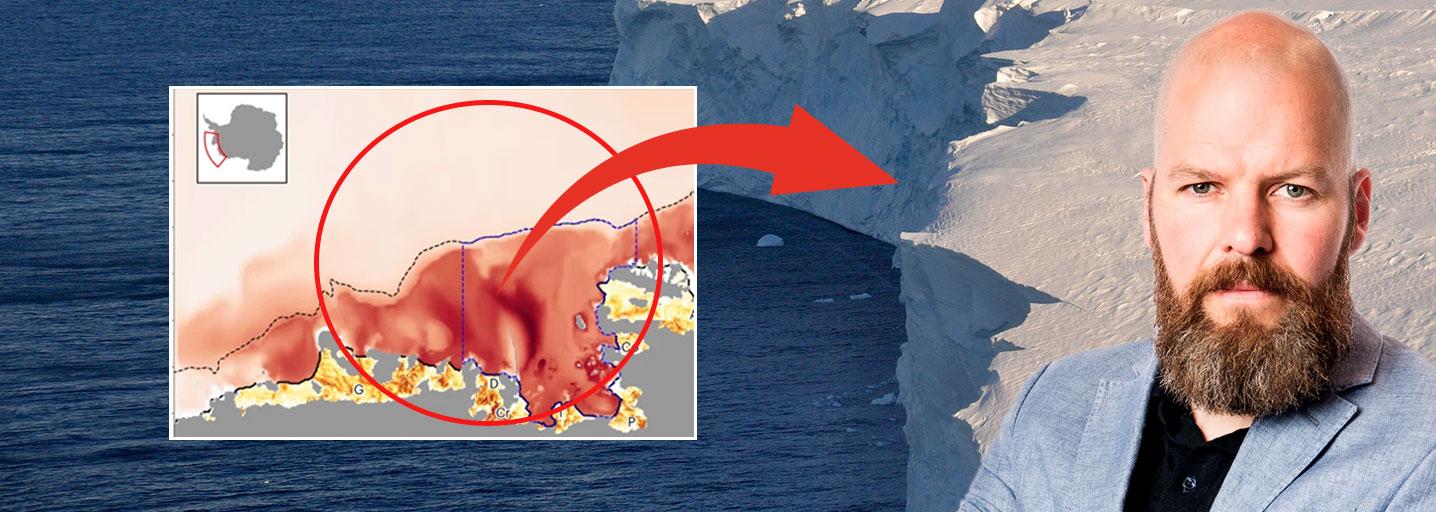
Columnists
Climate change
Something is going on under the "doomsday glaciers" - and it scares me
Jonathan Jeppsson
News and dig manager
This is a commenting text. Analysis and positions are the writer's.
Updated 21.43 | Published 18.50
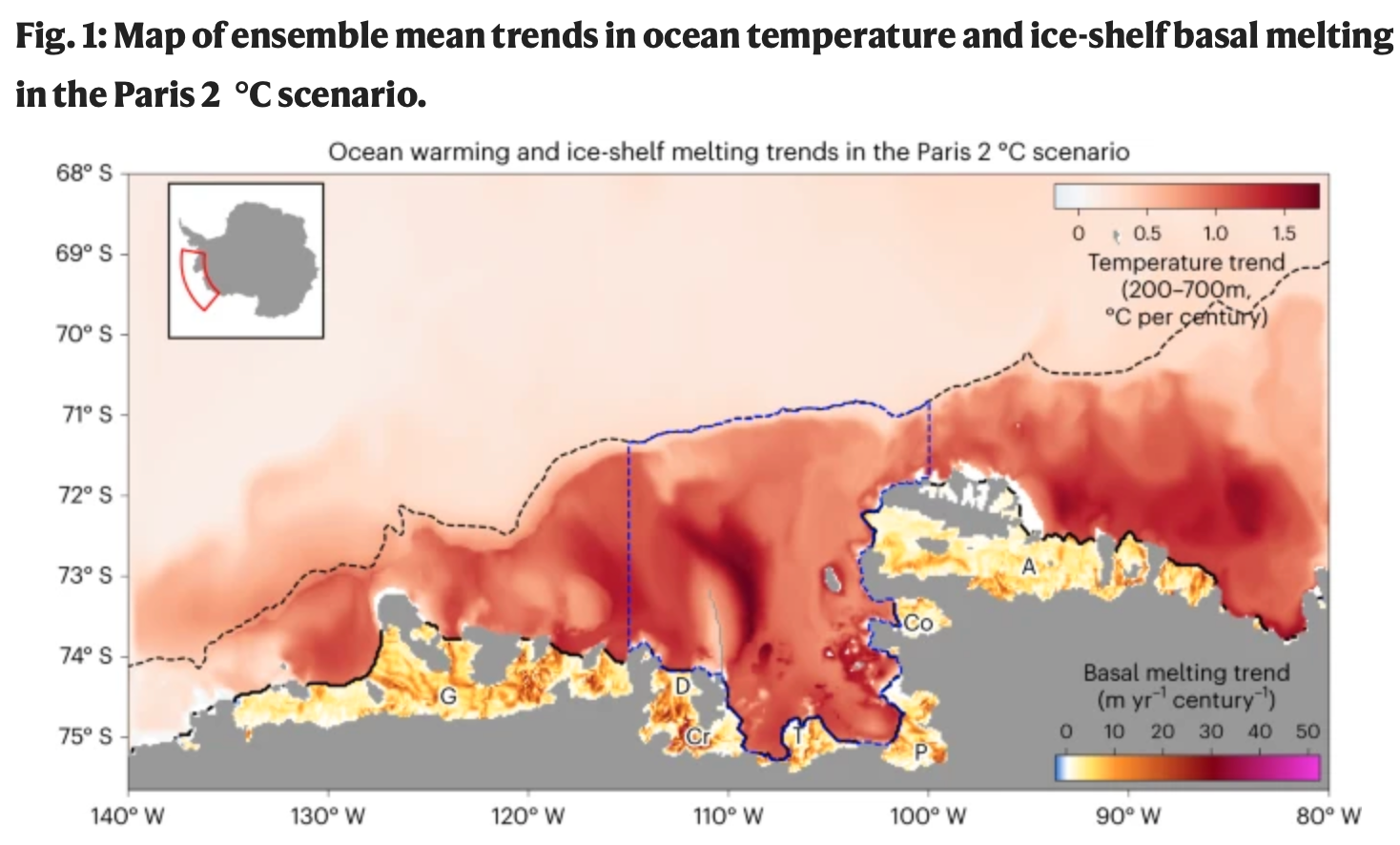
We are used to gloomy news on the climate front.
But the report that came out this week, about what is going on under the "doomsday glaciers" in Antarctica, is one of the most frightening yet.
It should change the way we look at the future.
I have read hundreds of reports and articles about climate change in the last six or seven years.
Of course, there are some that one could with good will call hoppful news - above all, it is about the expansion of solar and wind power on a global level. It is now moving so fast that the demand for fossil fuels is expected to peak around 2030 and that the production of electricity will soon come from a majority of "renewable" sources instead of coal, oil and gas.
For those who believe in modernity, in the notion of constant progress, that man can ultimately always control and shape his environment, this is a logical development.
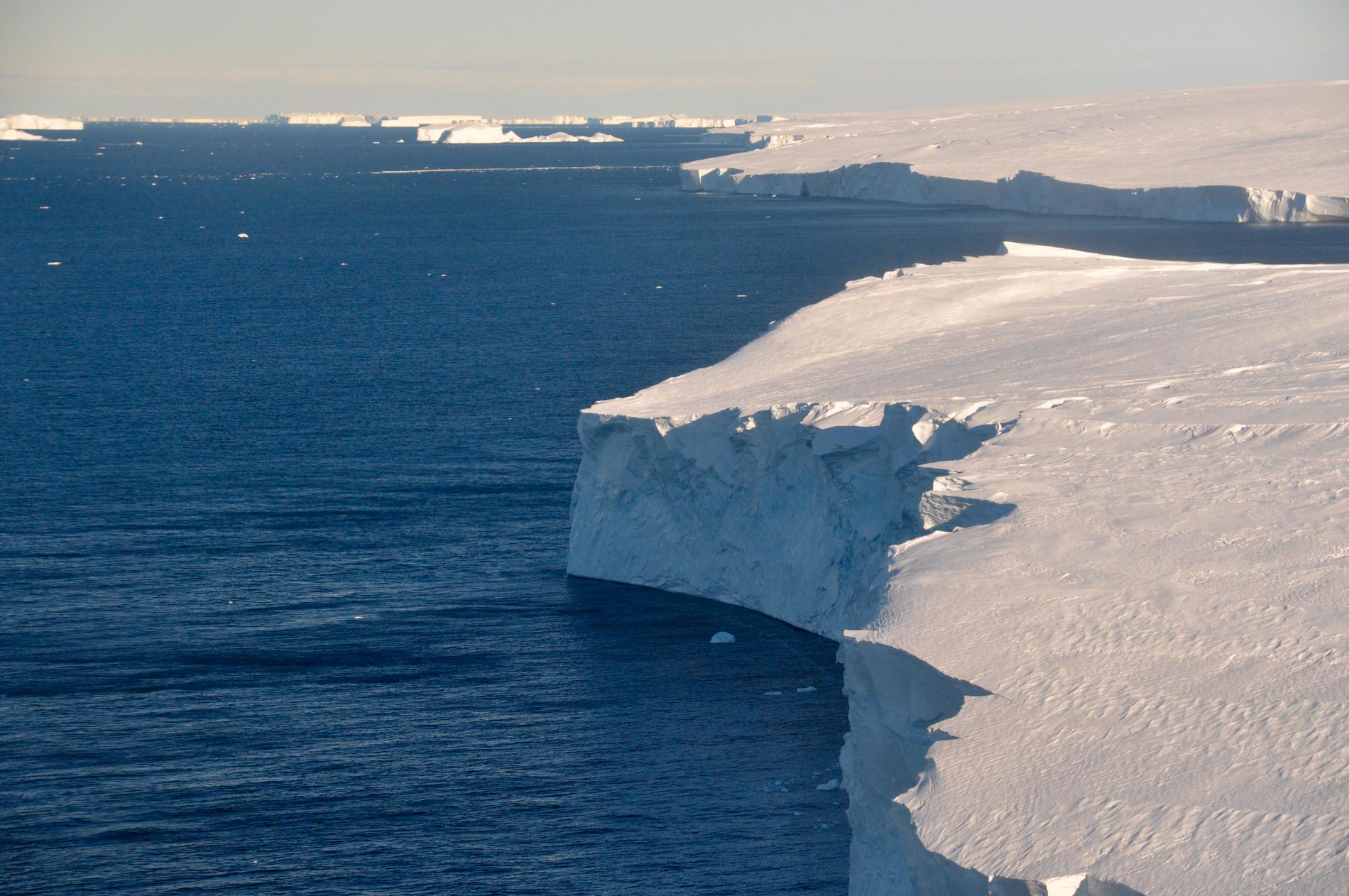
Antarctica 2020. Photo: David Vaughan / AP
A streak of light
But the vast majority of reports are tuned in minor. They are about signals from different ecosystems or places on earth that we are, on the contrary, about to lose control.
Still, those studies usually contain a catch – if we just reduce our emissions quickly, we have a chance to make it. A tampon to hold on to, a streak of light in the dark - and why not? Hasn't humanity got itself out of all the predicaments it got into so far?
That's why the report recently published in Nature Climate Change on the West Antarctic ice sheets is so frightening. Among other things, it is about the two "doomsday glaciers" Thwaites and Pine Island and about how warmer water gets under the ice shelves and melts them from below.
It states that the West Antarctic ice sheets will inevitably melt, no matter what we do, because of climate change. Even drastic emission reductions in the coming decades cannot slow the melting.
Given that West Antarctica holds enough ice to raise sea levels by five meters, this is incredible news.
Just over a third of the world's inhabitants live closer than 100 meters from the sea. Billions of people in the world's largest cities will be affected.
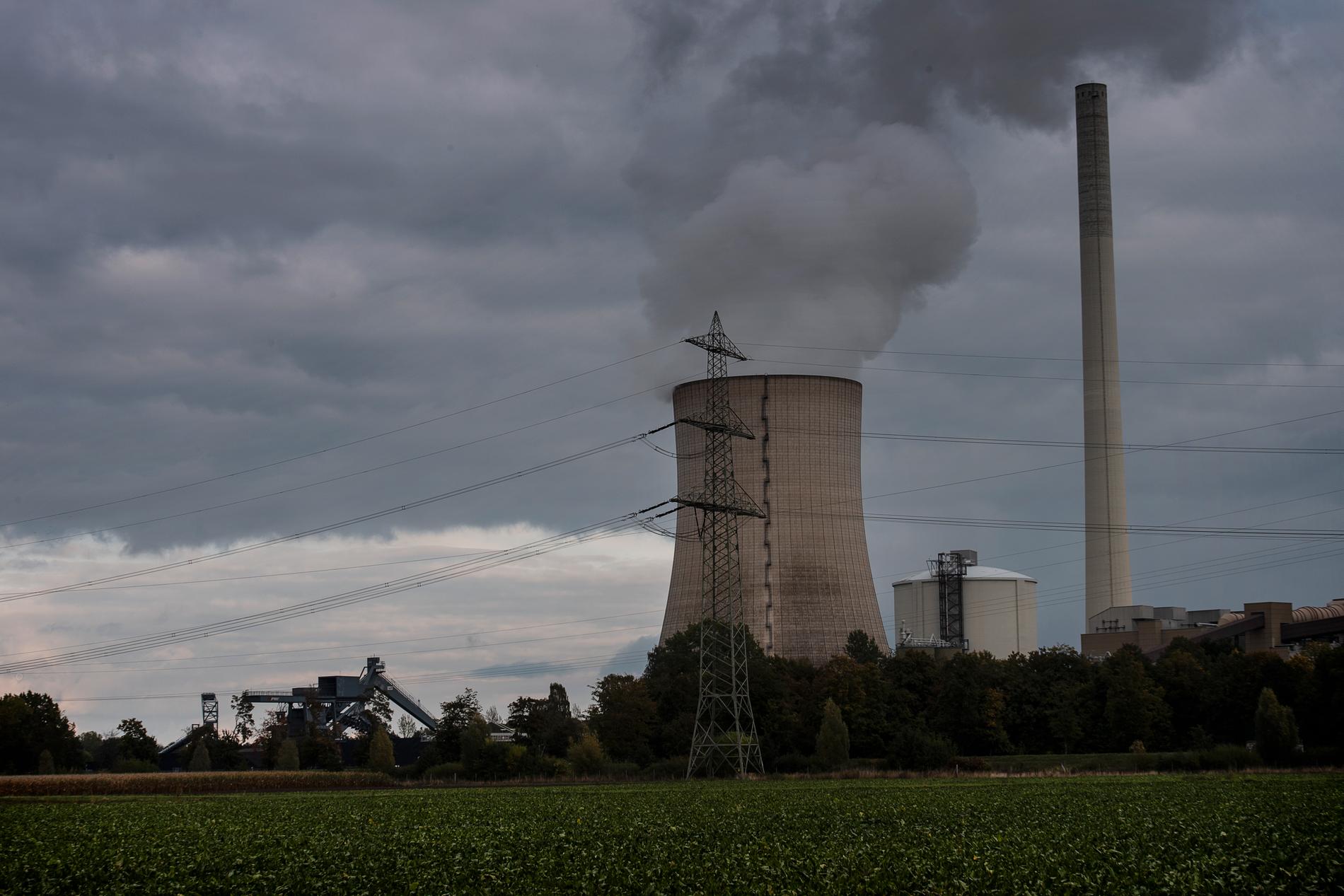
"Lost control"
"It looks like we have lost control over the melting of the West Antarctic ice sheet. If we had wanted to preserve it in its historical state, we would have had to take action against climate change decades ago. The bright side is that by realizing this situation in advance, the world will have more time to adapt to the coming sea level rise.”
At the same time, she believes that we must continue to fight against climate change, because it can have a big effect in the next century.
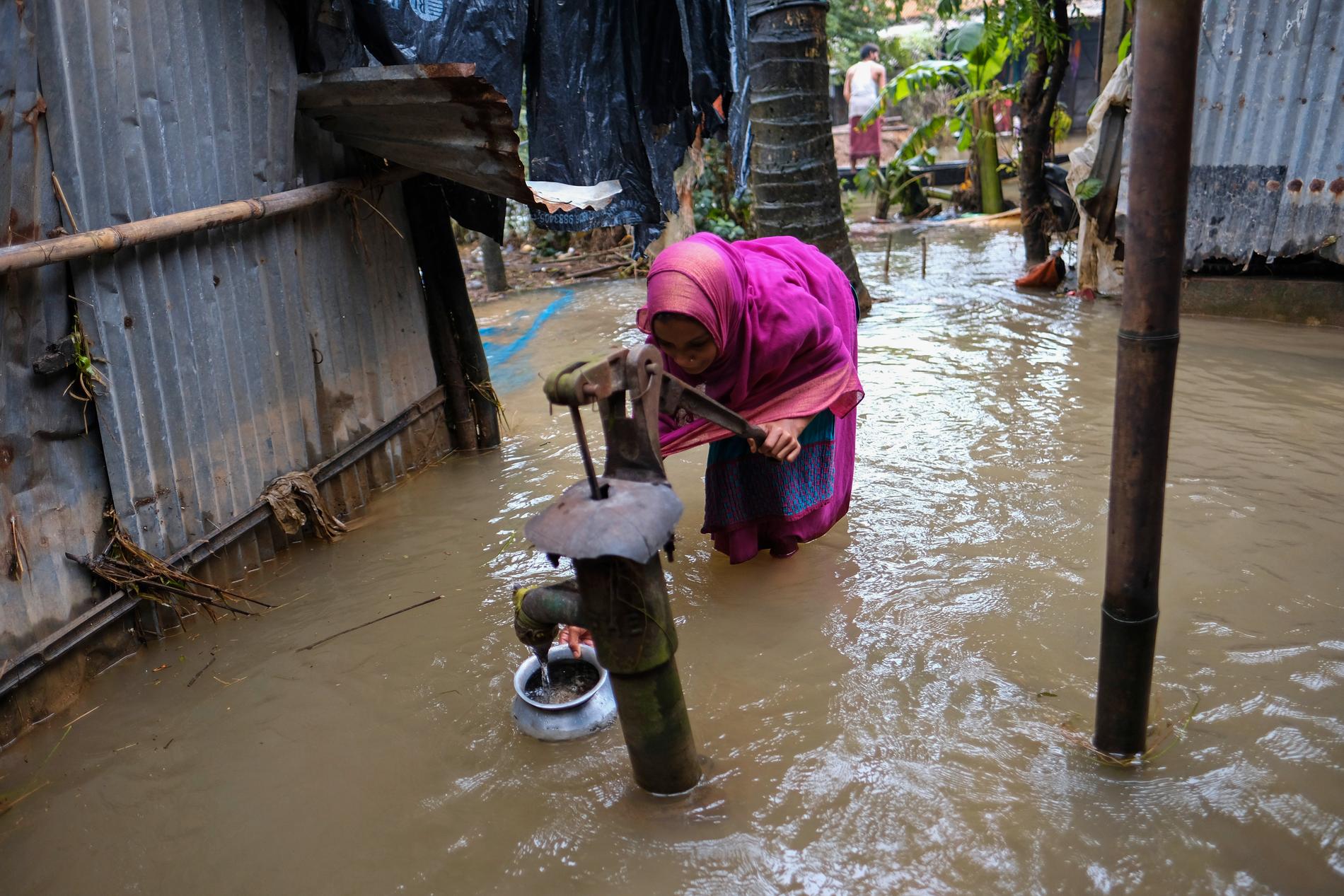
Flood in Bangladesh last summer. Photo: Mahmud Hossain Opu/AP
Stone Age Brain
But will we be able to have that perspective, realize what situation we are in and what needs to be done?
It is not likely. Our brain is very much a Stone Age brain and acts in the same way as when life was a constant struggle for survival on the savanna, when it was about acting quickly and short-term for your own, family or group's survival. We have much more difficulty with long-term threats. Humanity will continue to live as if what is presented in the report did not require an immediate adjustment.
But if the authors of the new study – which is in line with several other reports – are right, it means we need to start looking at the future of future generations in a different way.
To "fix" or "save" the climate is one thing - to start planning for adaptation is another.
There is something about the inevitability that means we should at least start talking about it, beyond the delusions we have that everything will be solved by human creativity.
Inga kommentarer:
Skicka en kommentar